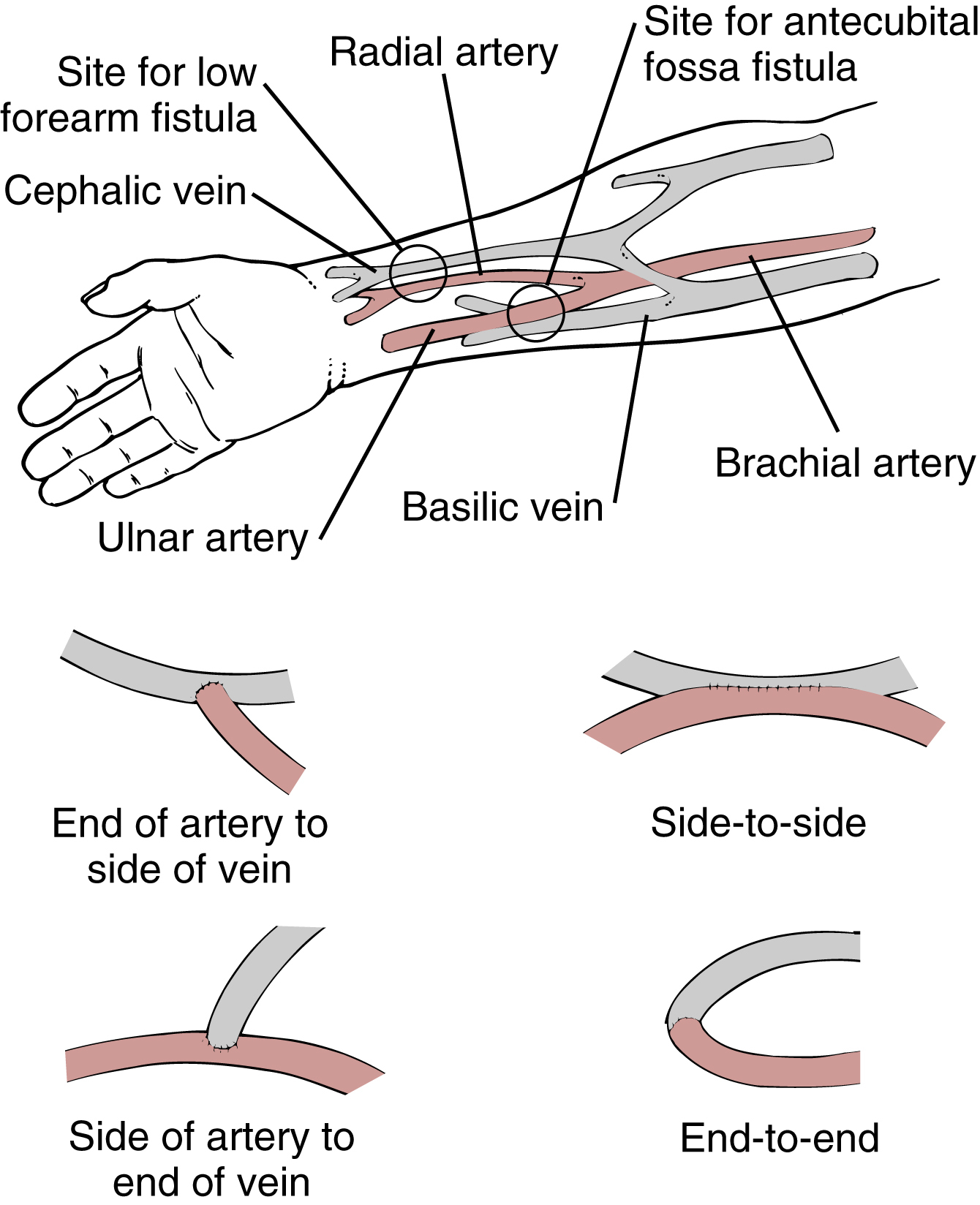fistula /fis″cho͝olə, -chələ/ pl. fistulae, fistulas [L, pipe] , an abnormal passage from an internal organ to the body surface or between two internal organs, such as a hepatopleural or pulmonoperitoneal fistula. Fistulas may occur in many sites from the gingiva to the anus. They may be caused by a congenital defect, injury, infection, spreading of a malignant lesion, surgery, radiotherapy of a cancerous growth, or trauma during childbirth. They also may be created to achieve therapeutic purposes or obtain body secretions for physiological studies. An arteriovenous fistula is commonly created to gain access to the patient’s bloodstream for hemodialysis. Anal fistulas that result from rupture or drainage of abscesses may be treated by fistulectomy or fistulotomy; fistulas between the vagina and bladder, urethra, ureter, or rectum may be repaired surgically, but the results are not always successful. −fistulous, fistular, fistulate, adj.

